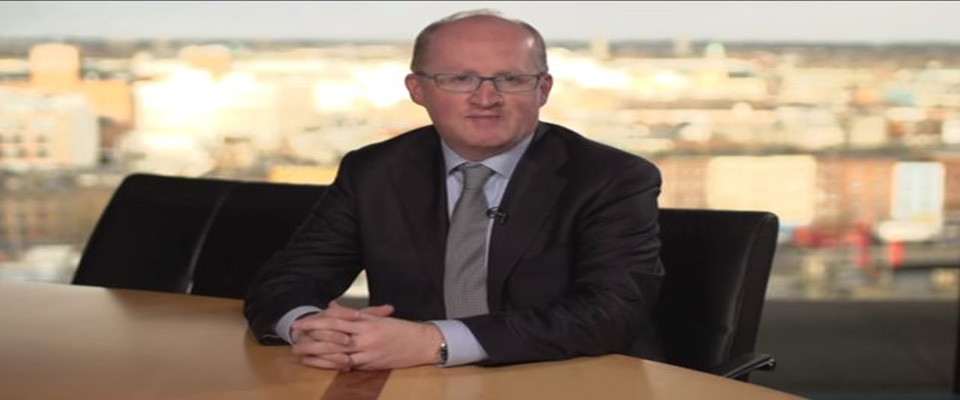The outgoing Governor of the Central Bank, Philip Lane, says no new housing bubble is emerging in Ireland.
Professor Lane finishes up in his role this week having taken over at the end of 2015.
In an exclusive TV interview with RTÉ Economics Correspondent Sean Whelan, Professor Lane said despite concerns about the rising cost of property in Ireland, there was no fear of a bubble emerging like in the previous decade.
He said there is no property bubble of the type that burst so spectacularly in 2007, and said that what was most important in his term as Governor was ensuring the Central Bank became more "proactive" in addressing problems.
What he regrets is that this was not clearly communicated to the public, whom he admits, are often frustrated at what they perceive as the slow pace of change.
He said there had been plenty of change at the Central Bank during the last decade however.
"I can understand people being frustrated when things move too slowly", he told Sean Whelan.
"I think my successor will have an important job in explaining what we do. I think the frustration I see in public commentary is not based on what we are actually doing, but on a misperception that we are too slow or too inactive".
Professor Lane said he came into the job to be the very opposite of inactive: "my intention was that the Central Bank should be proactive in guarding financial stability, proactive in protecting consumers, proactive in ensuring factors such as Brexit don’t derail the financial system.
"So what we have now is the philosophy that rather than being passive, rather than sitting around worrying about something, we try to take steps. So I am pleased that I came in with that intention - let's have a proactive Central Bank, which by the way is recognised internationally as being to the forefront in being proactive".
He cites as an example of being a proactive Central Bank the concerns that some have over the influx of foreign capital into the Irish commercial real estate market - if it flows in quickly, pushing up asset prices, it can flow out quickly too, and push property prices down.
"This is why our supervisory model is so different now - it very intrusive, we have a lot of people whose job it is to keep an eye on that type of risk. But the fact we have foreign investors in this economy is to make sure that if there was to be a downturn in the future, not all of it gets landed on the local banking system, on local depositors, on local taxpayers - that happened before we can’t have it happen again," he stated.
So how does he respond to the charge that he has presided over the inflation of another property bubble in Ireland, given the extraordinary price rises in both commercial and residential property?
"It’s very important we remember the lessons of the property bubble we did experience here in the mid-2000s. The market had fallen so much there was a case for a degree of recovery in property prices.
"But what we have been intent on making sure is that the credit system doesn't add to that. So, as you know, we have brought in rules limiting the size of mortgages - limiting them to the size of someone’s income.
"Prices (of homes) are stabilising here in Dublin, but it is not the case that these rises are being driven by excessive credit - that’s something we can do as the Central Bank, to not add fuel to the fire.
"In the end the solution to this is greater supply of housing. Construction going up each year, but the shortfall is so big there is pressure on pricing. And this reinforces the need to keep credit limited, because adding more credit and chasing the same number of houses is only going to be inflationary," Philip Lane said.
He acknowledges the "tremendous frustration" of people trying to get somewhere to rent or buy, but points to the challenges of trying to grow the construction sector in a country that is running short of building workers, and ramping up construction projects.
"In an economy where unemployment is below 5%, in an economy where construction workers are needed not just for new house building but for the public capital programme, and for retrofitting homes to deal with climate change, this is a challenge for an industry that was really crushed by the crisis: it needs to get bigger for all these reasons - new homes, retrofitting and public investment".
On Monday, Dr Lane starts a new post as Chief Economist of the ECB - becoming the first Irish representative on the six person executive board in the ECB’s two decade-long existence.





